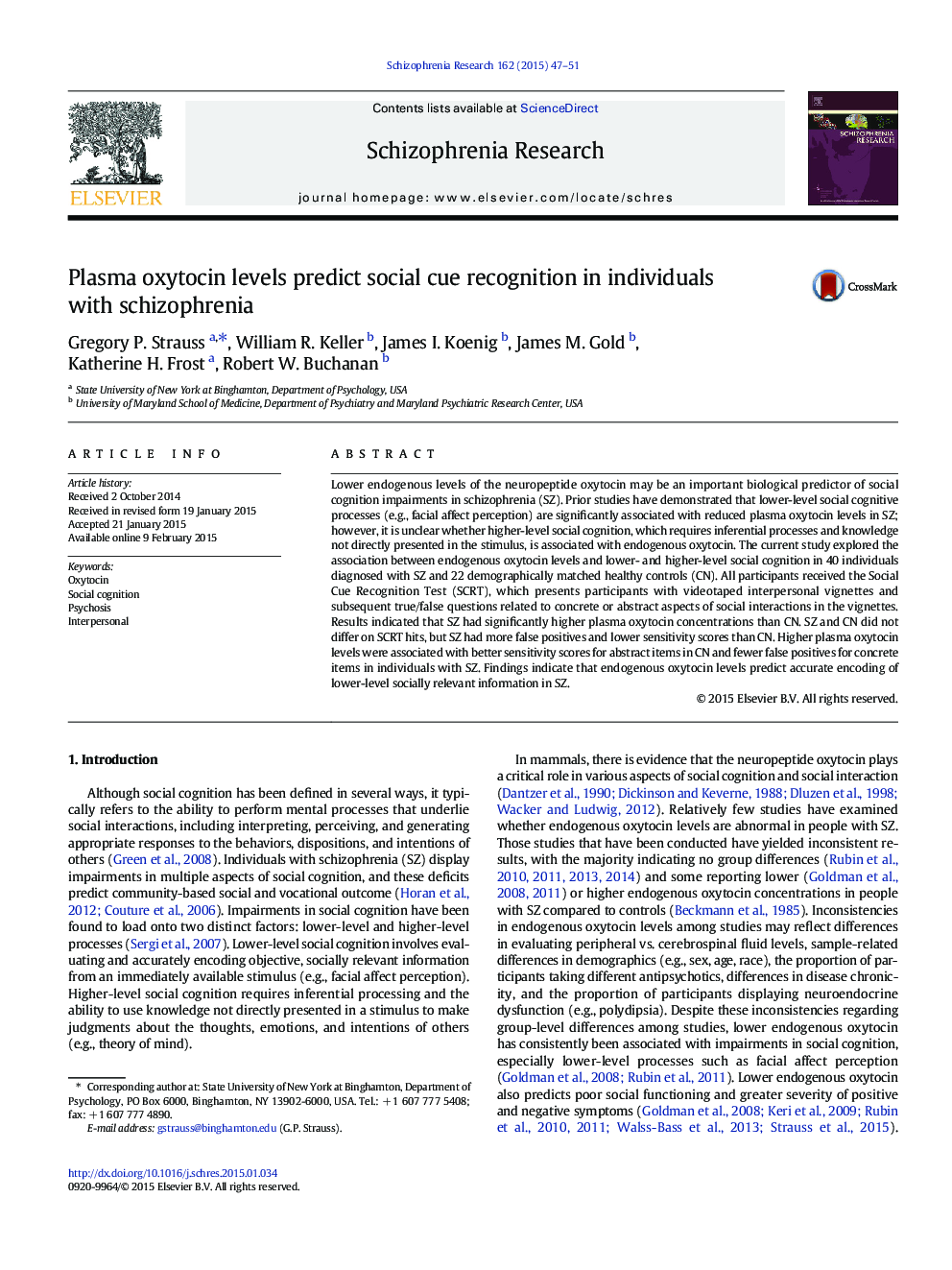| Article ID | Journal | Published Year | Pages | File Type |
|---|---|---|---|---|
| 6824150 | Schizophrenia Research | 2015 | 5 Pages |
Abstract
Lower endogenous levels of the neuropeptide oxytocin may be an important biological predictor of social cognition impairments in schizophrenia (SZ). Prior studies have demonstrated that lower-level social cognitive processes (e.g., facial affect perception) are significantly associated with reduced plasma oxytocin levels in SZ; however, it is unclear whether higher-level social cognition, which requires inferential processes and knowledge not directly presented in the stimulus, is associated with endogenous oxytocin. The current study explored the association between endogenous oxytocin levels and lower- and higher-level social cognition in 40 individuals diagnosed with SZ and 22 demographically matched healthy controls (CN). All participants received the Social Cue Recognition Test (SCRT), which presents participants with videotaped interpersonal vignettes and subsequent true/false questions related to concrete or abstract aspects of social interactions in the vignettes. Results indicated that SZ had significantly higher plasma oxytocin concentrations than CN. SZ and CN did not differ on SCRT hits, but SZ had more false positives and lower sensitivity scores than CN. Higher plasma oxytocin levels were associated with better sensitivity scores for abstract items in CN and fewer false positives for concrete items in individuals with SZ. Findings indicate that endogenous oxytocin levels predict accurate encoding of lower-level socially relevant information in SZ.
Related Topics
Life Sciences
Neuroscience
Behavioral Neuroscience
Authors
Gregory P. Strauss, William R. Keller, James I. Koenig, James M. Gold, Katherine H. Frost, Robert W. Buchanan,
